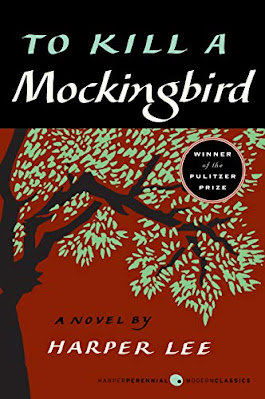To Kill a Mockingbird: Tom Robinson To Kill a Mockingbird
In the book "To Kill a Mockingbird," a little girl named Scout tells an amazing tale set in the peaceful hamlet of Maycomb, Alabama, in the 1930s. Scout sets off on a remarkable trip that reveals prejudice, injustice, and the eternal power of compassion, joined by her elder brother Jem and their intrepid companion Dill.
CLICK TO BUY 👈
Atticus Finch, Scout's morally upright and well-respected father, becomes involved in a contentious case when he decides to represent Tom Robinson, a black man wrongfully accused of a horrible murder. As Scout observes her father's persistent commitment to justice, she starts to doubt the false assumptions that have been ingrained in their society for a long time. Scout, Jem, and Dill embarked on a mission to learn the truth and expose the complex layers of Maycomb's pervasive bigotry out of an unquenchable curiosity. They come face to face with the agonising reality of inequity along the road, as well as the damaging effects of prejudice.
READ MORE: The Alchemist by Paulo Coelho
Scout and Jem watch the Tom Robinson trial from the audience, their eyes wide open to the apparent unfairness that permeates the proceedings. They see the enormous power of standing up for what is good in the face of fierce resistance via Atticus' passionate defence. Despite Atticus' persuasive arguments, the jury's decision reveals the town's residents' deeply established biases. This unfair conclusion has a long-lasting effect on Scout and Jem, changing their perspective and kindling their desire to defy social standards.
Scout, Jem, and Dill learn a great deal about the nuances of human nature via their interactions with neighbours and town residents. They become friends with mysterious recluse Boo Radley, who sparks a lot of rumours. They learn an important lesson about not making snap judgements about people based on outward looks or rumours as they investigate the cause of Boo's seclusion.
As Scout struggles with societal pressures to fit in and conform, her personal development is ingeniously linked to the greater story. She was led by her father's knowledge and learned to accept empathy and look at the world with compassion.
READ MORE: Atomic Habit by James Clear
Scout's belief in mankind is put to the test following the trial. Her experiences do, however, inspire a tremendous passion in her to fight the injustices she has seen. With her newly acquired knowledge and feeling of moral obligation, she transforms into a change agent who is motivated to have a beneficial effect on her community.
"To Kill a Mockingbird" is a classic example of the never-ending fight for justice and equality. Readers are exposed to the nuances of a civilization battling its own issues through Scout's adolescent perspective. The book challenges us to consider our own prejudices, encourage empathy, and work towards a society where compassion triumphs over prejudice. As the narrative comes to a close, Scout considers the significant influence her voyage has had on her perception of mankind. She emerges with a strong spirit and the realisation that, even in the face of hardship, it is ultimately our ability for compassion and understanding that may cross the barriers that separate us.
READ MORE: Fourth Wing REBECCA YARROS
In a society sometimes tainted by prejudice, "To Kill a Mockingbird" serves as an enduring reminder of the value of battling for justice and the power of empathy. It reminds us that the seeds of change are sowed by individual acts of courage and compassion and serve as motivation for future generations.
READ ALSO:






.png)
.png)
